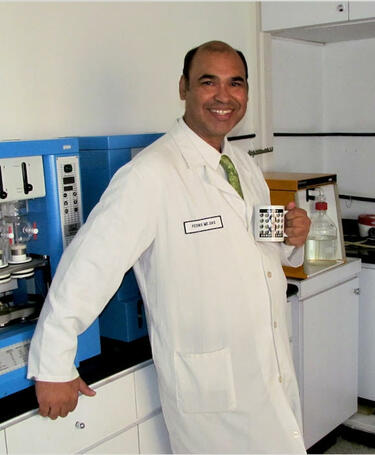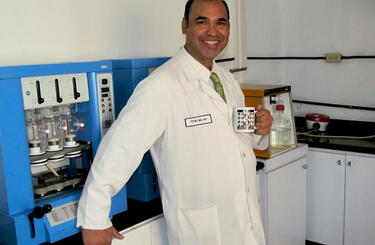
Developing a professional personality

Pedro Mejias, Senior Auditor with Consorcio Kaizen in Venezuela, reflects on the development of a professional personality during an auditor’s career.
With the passage of time, each auditor shapes their performance, developing something we could call a professional personality. From the outset of a professional’s career, when we still have a cursory knowledge of our strengths and weaknesses, you can incorporate these characteristics into your work, developing a style that is original and unique.
There are auditors who display a high level of empathy with their auditees, allowing the information they collect to flow smoothly; others are perceived to be colder and more distant, and must develop skills to extract the information required from personnel.
When you have participated in audits as an observer, you learn tools that can be incorporated into your own skills, and note counterproductive behaviours that you should avoid when it is your turn to be an auditor. These elements that constitute and contribute to your professional personality feed the strengths, and become a kind of creed or internal guideline to follow.
This is something that is also part of the culture and range of tools that the auditor deploys when practicing their profession, and has to do with whether the auditor ever managed a system such as the one they now evaluate.
Two types of auditor
In general, auditors who are more distant from their auditees are professionals who have never been in the place of the auditee. Those auditors who were once in charge of a management system tend to put themselves more in the shoes of the auditee.
Developing one's professional personality as an auditor is a complex task that requires achieving a subtle balance between the comfort of the auditee, the rigour of the activity, and the professional approach and deep knowledge of the audited activity, often in ever changing circumstances.
We all learn from an audit process, and our professional personality is perfected with each new organisation that undergoes our evaluation.
I know of an auditor who arrived at a company telling jokes and, after a day laughing with all their auditees, said goodbye with a final joke and the announcement that the company had not passed the audit.
Another I have met had the ability to get the auditees to tell them all the things they had previously set out to hide during the audit. Another I once saw auditing was as rigid as a broomstick. They did not ask any questions in three days, arriving in every department with the words: “Show me such and such a thing...”
There is another one that some auditees baptised “affectionately” as “Mr No”, who rejected all evidence or explanation given by the auditees, even though they varied their responses and perspectives year after year.
There were two auditors I met who had to apply the same assessment instrument based on 100 points, with a minimum pass rate of 65. The first auditor, whom I will call Type 1, drummed their fingers while opening their audits with: “Very well, at this moment you have zero points and you will have to fight tooth and nail and sweat every tenth of a percentage unit to see if you can reach the 65 points of the minimum approval.”
The other, whom I will call Type 2, used to begin their audits with: “Well, right now you have 100 points. Let's begin to review your processes and, if breaches are identified, they will subtract points from your 100. Let's hope they do not subtract enough to leave you below the minimum passing score.”
Which of them would you prefer to be audited by – Type 1 or Type 2?
Personal self-discovery
Developing your own professional style is a work of originality and personal self-discovery, but it must also be an expression of spontaneous authenticity. Copying a model because it has worked for others is usually a recipe for failure. Interviewers who resort to this subterfuge usually project a cardboard, artificial image, lacking in spontaneity, that is perceived by the auditee as a sign of weakness.
Generally, you must ask what moves us, what you believe, what motivates us to develop professional values and, little by little, discover the professional way of achieving these objectives to add value to the audited company.
I think people are proud of the work they do and like to talk about it. We all learn from an audit process, and our professional personality is perfected with each new organisation that undergoes our evaluation, as we understand the limitations inherent in each process. We all improve with the execution of systematic reviews of the way we carry out our professional work.
Are you writing clear audit reports?
Jennie Clark CQP MCQI, Director of Elliem Consulting and Vice Chair of CQI’s Audit Special Interest Group, makes the case for clear reporting of issues identified at audit.